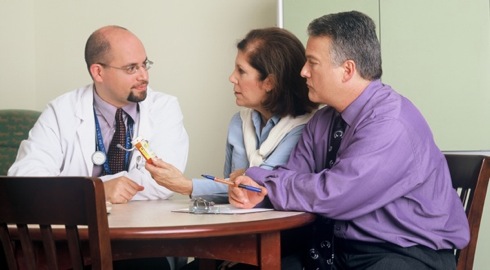Cancer Prevention Activities in Primary Care

14 Aug 13 |
Last month saw the launch of a report by Cancer Focus Northern Ireland (NI) investigating the current and potential role of the GP and Primary Care Nurse (PCN) in cancer prevention. Cancer prevention is the promotion of healthy behaviours as well as the avoidance of risk factor behaviours. These concepts are inherent in health promotion theory and practice. A recommendation in the cancer control programme was that the role of primary care professionals should be developed, particularly in relation to health promotion, screening and symptom recognition.
In this study, firstly a questionnaire survey was carried out of all GPs (n=1249, response rate 23%) and PCNs (n=500, response rate 45%) in NI. Subsequently one to one interviews were held with GPs (n=14) and PCNs (n=14).
Results showed that most cancer prevention activities in Primary care are delivered by PCNs (over 80% reported providing cancer prevention activities routinely for all domains). Over 90% of GPs reported providing acancer prevention activities routinely with regard to smoking and cervical screening but fewer for obesity, alcohol use and only 50% for diet and physical activity. The least provided service by both GPs and PCNs was advice in relation to UV exposure. Less than 50% of GPs and PCNs routinely provided general written information on cancer prevention. Screening was highly promoted by both groups. Positive views were expressed on the need to further develop the GP and PCN role with regard to cancer prevention and that a multidisciplinary approach should be adopted.
Barriers to cancer prevention activities were lack of demand primarily, although lack of time and resources and that health priorities and targets mitigate against a focused approach to cancer prevention activity were also cited.
Both groups felt they had the knowledge to deliver activities but required updating and support to allow them to do so. Most respondents indicated that patients were open to advice, felt it appropriate to come from the GP/PCN and felt optimistic that advice would be followed. Some however felt raising cancer risk may cause anxiety in patients and may impact on the clinician-patient relationship.
A very detailed and meticulous report with much food for thought for those working in Primary Care.
